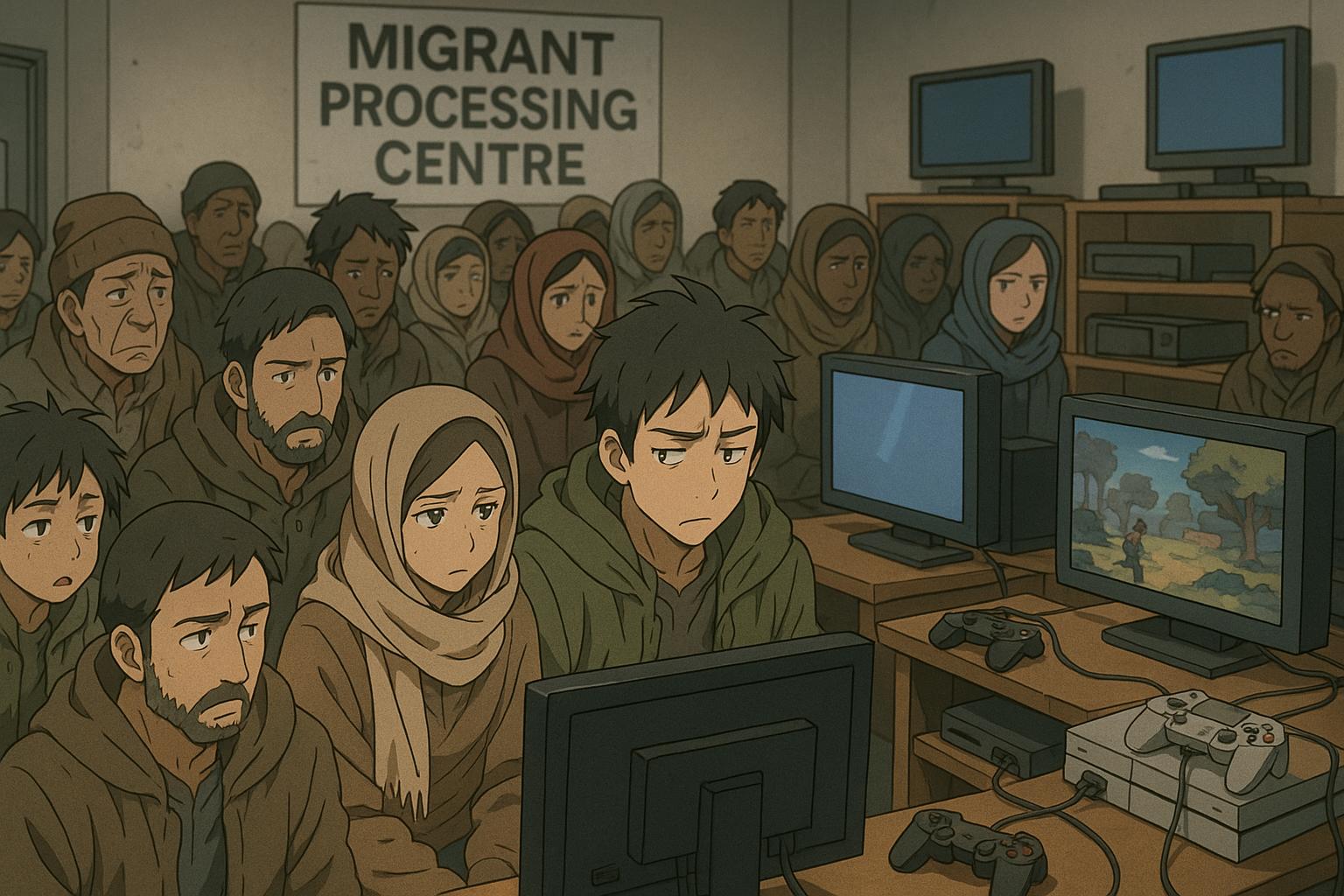The recent revelation that the Home Office has allocated over £60,000 for entertainment at the Manston migrant processing centre has sparked significant debate about spending priorities amid ongoing challenges within the UK's immigration system. This expenditure encompasses a variety of entertainment options, including televisions equipped with satellite channels, PlayStations, Nintendos, and subscriptions to newspapers and magazines. The figures, obtained via a Freedom of Information request, underscore a complicated dynamic in a facility that typically houses migrants for only up to 48 hours as their asylum claims are processed.
Prime Minister Sir Keir Starmer, amid his recent immigration policy announcements, pledged to considerably reduce net migration, asserting that the current trajectory risks transforming the UK into an "island of strangers". His comments echo broader concerns surrounding public services and community cohesion, as high migration numbers are said to have caused “incalculable damage” to these essential infrastructure areas.
In juxtaposition to this renewed emphasis on stringent immigration measures, the financial outlay on entertainment at Manston seems incongruent with the harsh realities many migrants face. Former Chief Executive of Border Force, Tony Smith, has voiced strong criticism regarding the current asylum system, claiming it unintentionally encourages irregular migrations. "Nowadays, migrants know that it's highly unlikely you will ever get removed if you come by boat," he pointed out. This statement highlights a critical view of how support mechanisms at centres like Manston may inadvertently fuel migratory pressure rather than alleviate it.
The context of this spending is further complicated by ongoing criticisms regarding the conditions at the Manston facility, which has faced scrutiny for overcrowding and inadequate resources. Reports indicate that the Home Office spent £19 million on maintaining tents at the centre over a sixteen-month period, a claim that illuminates the financial strain associated with managing migrant accommodations. Those tents, originally designed to accommodate around 2,200 individuals, have been reported to frequently exceed capacity, resulting in deplorable conditions that have prompted calls for public inquiry.
Moreover, recent government strategies to manage the surge in migrants include spending £500,000 daily on unoccupied hotel beds as a buffer to control crowding at Manston. While this approach aims to mitigate immediate pressures, it contributes to an overarching annual cost exceeding £6 million for housing asylum seekers in various accommodations.
In light of these pressing issues, the Home Office has acknowledged its missteps, particularly in enhancing the living conditions at Manston. Steps have been announced to improve medical facilities, provide additional bedding, and enhance catering services. However, critics argue that these measures may be insufficient given the entrenched challenges, with detainees describing the facility in stark terms, likening it to a zoo due to its overcrowded and unsanitary conditions.
As discussions around immigration policy intensify, local communities, particularly around Manston, are increasingly vocal about proposed expansions to the processing centre. A £700 million plan for expansion has raised alarms among residents, who fear it may blur the lines between temporary processing and permanent settlement.
In summary, the juxtaposition of substantial entertainment expenditures against the backdrop of struggling migrant conditions raises critical questions about priorities within the immigration system. As policymakers grapple with these challenges, the need for a balanced approach that addresses both humanitarian needs and community concerns is evident; without this, the policies may risk perpetuating the very issues they seek to resolve.
Reference Map
- Paragraphs 1, 2
- Paragraphs 3, 4
- Paragraph 5
- Paragraph 6
- Paragraph 7
- Paragraph 8
- Paragraph 9
Source: Noah Wire Services
